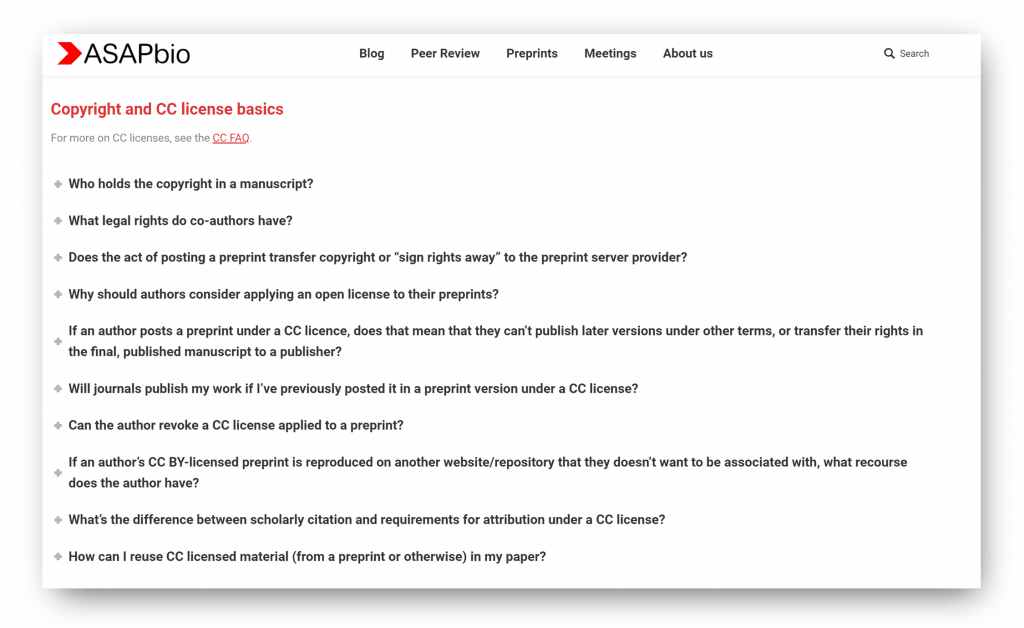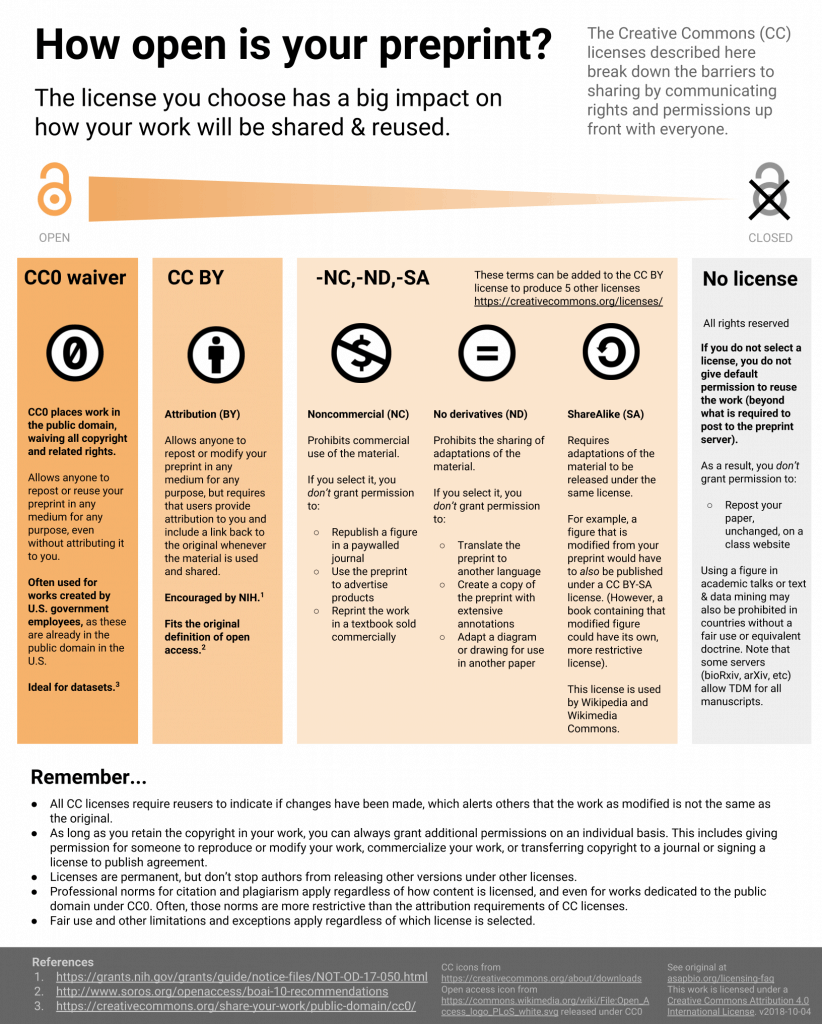By Jessica Polka (ASAPbio), Donna Okubo (PLOS), and Tim Vollmer (Creative Commons)
Today we’re happy to share two new documents that we hope will aid researchers in their decision to share early work as preprints. Even while the practice of publishing preprints continues to grow, we know from our community outreach that there are still lots of questions regarding open licensing options, including downstream publishing implications for preprints.
So, ASAPbio has worked with its expert committee to draft and share a set of resources. The first is a list of questions and answers that focuses on open licensing and preprints. The FAQ includes fundamental questions such as “Who holds the copyright in a manuscript?” but also digs into more specific questions related to preprints like “Does the act of posting a preprint transfer copyright or sign rights away to the preprint server provider?” and “Why should authors consider applying an open license to their preprints?” The purpose of the FAQ is to provide useful and descriptive information to authors about how Creative Commons and open licensing operates with regard to preprints and their downstream journal publications. We hope that the resource can help researchers feel more comfortable sharing preprints under open licenses, and thus open the door to early access and collaboration possibilities with others.
 The second resource is a simple, 1-page infographic that explains the spectrum of openness with regard to preprint licensing. The document, which is titled “How open is your preprint?”, is modeled on the earlier “How Open Is It?” guide produced by SPARC, PLOS, and OASPA to evaluate the openness of scholarly journals. We hope this easy-to-read graphic can be helpful in explaining at a glance the differences in licensing choices for preprints.
The second resource is a simple, 1-page infographic that explains the spectrum of openness with regard to preprint licensing. The document, which is titled “How open is your preprint?”, is modeled on the earlier “How Open Is It?” guide produced by SPARC, PLOS, and OASPA to evaluate the openness of scholarly journals. We hope this easy-to-read graphic can be helpful in explaining at a glance the differences in licensing choices for preprints.
While they were created with researchers in mind, we hope that other stakeholders can reuse or adapt these resources, which are licensed under CC BY.
We’ve developed the two educational documents above together with our licensing subcommittee, and we received input from a variety of groups and individuals, including legal experts, librarians, and preprint services. But we know there will be changes, corrections, and additions, so we want to hear from you! Help us by sending your comments and feedback to help improve these resources to jessica.polka@asapbio.org.








1 Comment